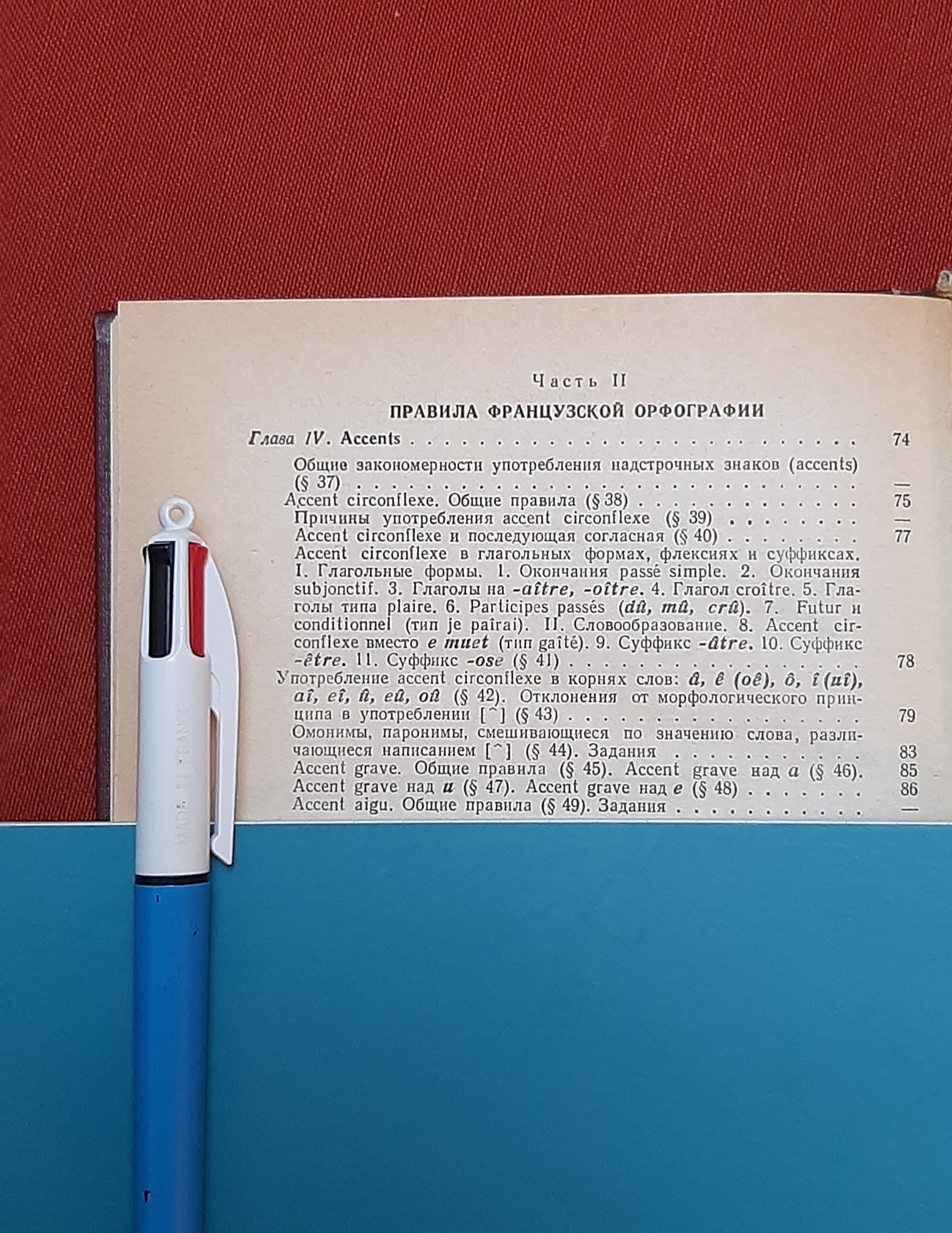Where do French pronunciation errors come from?

Making pronunciation errors while learning French is quite natural. Probably, everyone agrees on the fact that French pronunciation is not easy, especially as we compare it to other Romance languages: Italian or Spanish. Therefore, it is no surprise that it causes problems for learners of this language. Where do French pronunciation errors come from? Why do even advanced French students make pronunciation errors? Can they be avoided?
Pronunciation and spelling: two different languages
The first major difficulty of any learner of French is the discrepancy between the pronunciation and the spelling. The most eloquent example is the 5-letter ending -aient of the Imparfait tense, which is pronounced as one sound. While it is relatively easy to remember the pronunciation of the French digraphs „ch”, „ou” or „oi”, distinguishing and mastering correct pronunciation of other digraphs or trigraphs, which are similar to each other and pronounced as one vowel sound, for example au, ai, eau, ain, aim, ein, eim, un, um, or en, require attentiveness, time and practice.
Twice more vowel sounds in French language
Another issue is that French language includes sounds that do not exist in the learner’s mother tongue, and therefore, are difficult to pronounce (and sometimes even to hear) by learners whose speech organs are not trained enough in articulating foreign, unknown sounds. Out of 14 French vowel sounds, half of them do not exist in Polish nor in English.
Parisian “r”
There is also the problematic French „r”, the so-called Parisian “r”, but the way of its pronunciation does not affect the communication effectiveness. However, it is hard to deny that the French „r” is probably the most distinctive and recognisable French sound, and makes French language sound “more French” (even if in some French areas, „r” is pronounced like in Polish, Spanish or Italian).
French vowel sounds: [ə], [ɛ], [e], [œ], [ø]
From my experience, the most problematic issue seems to be, sometimes even for advanced learners, distinguishing in speech the five vowel sounds that correspond to the following symbols from the International Phonetic Alphabet (IPA): [ə], [ɛ], [e], [œ], [ø]. Sometimes, the learners use, in their speech, only part of them or pronounce them in the wrong place.
Incorrect pronunciation of these vowel sounds may result in changing the speakers’ communicative intentions:
| Communicative intention | Meaning of the speech | |
| a | je sens (I feel / I am feeling) | j’ai cent… (I have a hundred…) |
| b | seul (alone) | sel (salt) |
| c | je veux (I want) | je vais (I go / I am going) |
| d | je peux (I can) | j’ai peu… (I have few/little…) |
| e | deux baguettes (two baguettes) | des baguettes (baguettes) |
| f | je dis (I say/I am saying) | j’ai dit (I said) |
These types of examples can be multiplied…
French accent marks: our enemies or allies?
As if it wasn’t enough, some French vowels require accent marks over them. Moreover, although the latter usually clearly indicate the way of pronouncing the vowel „e” (é, è), the learners don’t always benefit from this knowledge. It also happens that they use the accent marks with a lot of freedom and consider them a useless graphic element, forgetting that they are orthographic signs, and most of them carry essential phonetic information.
Therefore, the reverse is also true: ignoring the rules related to the French accent marks and/or skipping the latter in the spelling lead to incorrect pronunciation. I can teach you the rules of using French accent marks. Click on this service link Pronunciation.

When pronunciation doesn’t keep pace with grammar
You may know grammar but if it is not accompanied by knowledge of correct pronunciation rules, it sometimes may be useless. Let’s take a common error to illustrate it: the speakers don’t distinguish in their speech the tenses passé composé and imparfait, formed with the 1st group verbs, after je, for example: je parlais and j’ai parlé. Correct pronunciation of the underlined letters/groups of letters is essential for distinguishing these two tenses after je.
In French, incorrect pronunciation doesn’t convey many other grammar subtleties, for example, the difference between the singular and the plural (le – les) or between futur simple and conditionnel présent (je prendrai – je prendrais).
Mental barrier
According to my observations, one of the reasons for incorrect pronunciation may also be mental barrier. This is particularly the case of Polish students that learn, at the beginning of their French adventure, that French sounds contain a “close e”. And, although Polish language includes a perfect equivalent of the French “close e” (the Polish letter and sound “y”), students have tendency to pronounce the French “close e” as a sound similar to the Polish “e”, which is closer to the French “open e”.
Sometimes, especially when unfamiliar with the rules of French pronunciation, students may feel lost, unconfident and – in order to make their speech sound „more French” – they pronounce, for example, the French open vowels [ɛ] (example: mer) or [ɔ] (example: porte) with too much muscle tension and with their mouth not open wide enough, while they should, in this situation, relax their mouth muscles. Thus, they make unnecessary pronunciation mistakes.
Fluency and correct pronunciation: do they go together?
Pronunciation mistakes are also made by advanced students who know the essential French pronunciation rules. However, while speaking quickly, they sometimes „forget” about them because they are focused on conveying their message fluently. The reason is that the speakers’ speech organs are insufficiently trained: the transition from the „silent e” position to the ”close e” position, for example in semer, le blé, or from the sound [y] to the „close e”, like in lutter, purée, requires training and practice. In such situations, I recommend slowing down the pace of speech and pronouncing the problematic words as correctly as possible. Gradually, the speech organs get trained but you should give it a chance!
Learning French pronunciation at schools
Although correct French pronunciation is essential in learning French language, because it affects the communication effectiveness (I encourage you to read my blog article Why French pronunciation is important?), this aspect of language is often overlooked in traditional schools and language courses due to lack of time, focusing on grammar and developing strictly “communication skills”. Furthermore, during group classes, the conditions are not optimum for training or correcting French pronunciation. As a result, the students are often unaware of their incorrect pronunciation and of its impact on communication effectiveness, and they reinforce their incorrect pronunciation habits, which are more difficult to eliminate in the later stages of learning French.
IPA – friendly hieroglyphs
Polish learners write down the pronunciation of new French words by using letters from the Polish alphabet, which has fewer vowel sounds than French language. Therefore, it is an approximate, imperfect method, which – in the long term – may do more harm than good.
In this situation, the symbols of the International Phonetic Alphabet (IPA) might be helpful. Knowledge of phonetic transcription pays off at each stage of learning French: it enables to correctly write down the pronunciation of new words and train correct pronunciation from the very beginning of learning French language, which, eventually, prevents from acquiring incorrect pronunciation habits. If you would like to learn the IPA symbols with me in a practical way, click on this service link Pronunciation.
Good ear…
It may happen that a learner cannot „hear” the differences between various French vowel sounds, which makes learning French pronunciation much more difficult.
In conclusion…
French pronunciation errors may have multiple sources and causes, and they are basically related to specific features of French language: discrepancy between spelling and pronunciation, and sounds difficult to pronounce because non-existent in the learner’s mother tongue. However, many errors could be eliminated at a relatively early stage, if only the learners had awareness and knowledge about French pronunciation rules, as well as the opportunity to do phonetic exercises. Being unaware of incorrect pronunciation reinforce their incorrect pronunciation habits, which are more difficult to eradicate in the later stages of learning French. Phonetic transcription may be helpful in learning correct French pronunciation.
